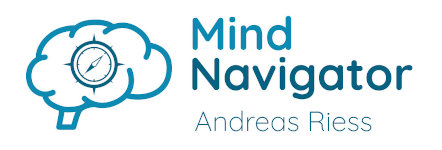
Your brain cannot distinguish between mental image and reality. This is what I work with you in mental training. Mental training uses your imagination to play out situations, experiences, and lessons learned in your head. Regardless of whether you actually experience something or just imagine the experience, you activate the same areas in the brain.
As you visualize your goals and the realistic hurdles you may encounter along the way, you'll develop strategies to overcome those obstacles.
Neurobiologically, visualizing the target state activates the emotional centers. In this process, neuroplastic messengers are released and your consciousness gets good access to the higher powers that lie within it. This is ideal for developing solutions to overcome these hurdles.
If you have replayed these future events and your behavior in detail several times in your head, they are no longer new behavior patterns for your brain and it can outsource parts of this future behavior to other brain regions that require less energy for the same action at the same time. Colloquially, this is also referred to as "second nature" and corresponds to those actions that are automated. Now, when the action actually has to be mastered, the head literally "free". Thus, you have more resources available to better cope with unforeseen events.
Martial arts legend and movie star Chuck Norris says that visualization was one of his best training secrets during his fighting days. Whenever a fight was imminent, he would play it out in his mind, completely and in great detail. Every action he would perform he thought through.



